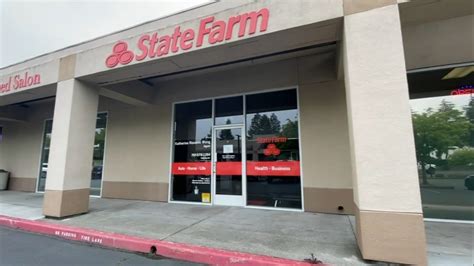How To Become A Insurance Adjuster

The insurance industry plays a crucial role in our society, providing financial protection and peace of mind to individuals and businesses alike. Within this vast sector, insurance adjusters hold a pivotal position, serving as the mediators between insurance companies and policyholders during claims processes. Becoming an insurance adjuster is a rewarding career path that offers stability, growth opportunities, and the chance to make a tangible difference in people's lives. In this comprehensive guide, we will delve into the steps, skills, and considerations involved in pursuing a career as an insurance adjuster, exploring the diverse paths and specialized fields within this profession.
Understanding the Role of an Insurance Adjuster

Insurance adjusters, often referred to as claims adjusters or claims examiners, are responsible for evaluating and settling insurance claims. They act as the primary point of contact for policyholders when they experience a loss or damage covered by their insurance policy. Adjusters meticulously review claims, assess the extent of the damage, investigate the circumstances, and determine the appropriate compensation or coverage based on the policy terms.
The role of an insurance adjuster encompasses a wide range of responsibilities, including:
- Claim Intake and Assessment: Adjusters receive and process incoming claims, carefully evaluating the nature and scope of the loss. They review the policyholder's documentation, such as photographs, estimates, and repair receipts, to understand the extent of the damage.
- Investigation and Verification: Conducting thorough investigations is a critical aspect of an adjuster's work. They may visit the site of the incident, interview witnesses, and gather evidence to determine the validity and extent of the claim. This step ensures that claims are handled fairly and accurately.
- Determining Coverage and Liability: Adjusters possess a deep understanding of insurance policies and coverage terms. They analyze the policyholder's contract to determine the applicable coverage and assess liability. This process involves interpreting complex legal and insurance jargon to make informed decisions.
- Negotiation and Settlement: Once the claim has been evaluated, adjusters engage in negotiations with the policyholder to reach a fair settlement. They calculate the value of the claim, taking into account factors such as depreciation, salvage value, and policy limits. Effective communication and negotiation skills are essential to resolve claims efficiently.
- Documentation and Record-Keeping: Throughout the claims process, adjusters maintain detailed records and documentation. They prepare reports, maintain case files, and ensure that all relevant information is accurately recorded. Proper record-keeping is vital for future reference and to support the insurer's legal obligations.
Educational Requirements and Training

The educational path to becoming an insurance adjuster varies depending on the specific field and jurisdiction. However, a solid foundation in insurance principles and practices is essential. Here are some common educational requirements and training options:
Obtaining a Degree
While not always mandatory, pursuing a bachelor’s degree in a related field can provide a strong foundation for a career as an insurance adjuster. Relevant degree programs include risk management, insurance, business administration, or a similar discipline. These programs offer a comprehensive understanding of insurance concepts, risk assessment, and legal considerations.
Insurance Licensing
Most jurisdictions require insurance adjusters to obtain a license to practice. Licensing requirements vary by state or province and typically involve passing one or more examinations. These exams assess the candidate’s knowledge of insurance laws, regulations, and practices specific to the jurisdiction. It is important to research the licensing requirements in your desired area of practice.
On-the-Job Training
Many insurance companies offer on-the-job training programs for new adjusters. These programs provide a combination of classroom instruction and hands-on experience, allowing individuals to learn the practical aspects of the role. Trainees are often paired with experienced adjusters who mentor and guide them through the claims process.
Continuing Education
The insurance industry is constantly evolving, with new regulations, products, and technologies emerging. To stay abreast of these changes and maintain their licenses, insurance adjusters are often required to complete continuing education courses. These courses ensure that adjusters remain knowledgeable and up-to-date with industry developments.
Skills and Qualifications
Beyond educational requirements, insurance adjusters possess a unique set of skills and qualifications that contribute to their success in the field. Here are some key attributes:
- Analytical Thinking: Adjusters must possess strong analytical skills to evaluate complex claims, interpret policies, and make informed decisions. They need to critically assess evidence, calculate losses, and determine appropriate settlements.
- Communication Proficiency: Effective communication is vital for insurance adjusters. They interact with policyholders, claimants, witnesses, and other stakeholders. Clear and empathetic communication helps build trust and facilitates the resolution of claims.
- Attention to Detail: Attention to detail is crucial when reviewing policies, assessing damages, and documenting claims. Adjusters must be meticulous in their work to ensure accuracy and avoid potential disputes.
- Time Management: Managing multiple claims simultaneously requires excellent time management skills. Adjusters must prioritize tasks, meet deadlines, and ensure timely resolution of claims while maintaining a high level of quality.
- Negotiation Skills: Negotiation is an essential aspect of an adjuster's role. They must possess the ability to negotiate settlements that are fair to both the policyholder and the insurance company. Strong negotiation skills help resolve claims efficiently and avoid protracted disputes.
- Technical Proficiency: In today's digital age, insurance adjusters should be comfortable using technology. This includes proficiency in using claims management software, electronic documentation systems, and online research tools to streamline the claims process.
Specialized Fields in Insurance Adjusting
The insurance adjusting field offers a variety of specialized areas that cater to different interests and skill sets. Here are some popular specializations:
Property and Casualty Adjusting
Property and casualty adjusters handle claims related to damage to property, such as homes, businesses, and vehicles. They assess the extent of the damage, determine the cause, and negotiate settlements. This field often involves working with contractors, engineers, and other experts to accurately evaluate property losses.
Liability Adjusting
Liability adjusters focus on claims arising from accidents, injuries, or other incidents where negligence or liability is at stake. They investigate the circumstances, gather evidence, and determine fault. Liability adjusters play a critical role in resolving disputes and ensuring fair compensation for those affected.
Workers’ Compensation Adjusting
Workers’ compensation adjusters specialize in handling claims related to workplace injuries and illnesses. They evaluate the severity of the injury, assess the employee’s ability to work, and negotiate settlements or provide benefits accordingly. This field requires a deep understanding of workers’ compensation laws and regulations.
Life and Health Adjusting
Life and health adjusters handle claims related to life insurance policies, health insurance coverage, and disability benefits. They investigate the circumstances surrounding the claim, review medical records, and determine eligibility for benefits. This specialization requires empathy and a thorough understanding of the complex nature of life and health insurance.
Catastrophe Adjusting
Catastrophe adjusters, also known as CAT adjusters, are deployed to handle claims resulting from natural disasters, such as hurricanes, floods, or wildfires. They work in challenging environments, often traveling to affected areas to assess damage and provide support to policyholders. CAT adjusters play a vital role in helping communities recover from devastating events.
Career Opportunities and Growth

The insurance industry offers a wide range of career opportunities for insurance adjusters. With experience and expertise, adjusters can advance into specialized roles, take on leadership positions, or transition into other areas of the insurance sector. Here are some potential career paths:
- Senior Claims Adjuster: Experienced adjusters can advance to senior positions, overseeing a team of adjusters and managing complex claims. Senior adjusters provide mentorship and guidance to their colleagues, ensuring consistent and efficient claims handling.
- Claims Supervisor or Manager: Adjusters with exceptional leadership skills and a strong track record may progress into supervisory or management roles. They oversee claims operations, set standards, and ensure compliance with company policies and regulatory requirements.
- Specialized Claims Expert: With extensive knowledge and experience in a specific field, adjusters can become highly sought-after experts. They may provide consulting services, offer training and guidance to other adjusters, or even testify as expert witnesses in legal proceedings.
- Underwriting: Adjusters with a deep understanding of risk assessment and insurance policies may transition into underwriting roles. Underwriters evaluate the risk associated with insurance applications and determine the terms and rates for coverage.
- Risk Management: Some adjusters may find opportunities in risk management, where they help organizations identify and mitigate potential risks. They develop risk management strategies, implement loss prevention measures, and advise businesses on risk-related matters.
The Future of Insurance Adjusting
The insurance adjusting field is continually evolving, influenced by advancements in technology, changing regulations, and evolving consumer expectations. Here are some key trends and considerations for the future of insurance adjusting:
Technology Integration
Technology is transforming the insurance industry, and adjusters are increasingly utilizing digital tools and platforms to streamline their work. Mobile apps, remote inspection technologies, and artificial intelligence are enhancing efficiency and accuracy in claims handling. Adjusters must adapt to these technological advancements to remain competitive and efficient.
Changing Regulatory Landscape
Insurance regulations are subject to frequent updates and revisions. Adjusters must stay informed about these changes to ensure compliance and provide accurate guidance to policyholders. Keeping up with regulatory developments is essential for maintaining a high level of professionalism and integrity.
Focus on Customer Experience
In today’s competitive market, insurance companies are placing a greater emphasis on delivering exceptional customer experiences. Adjusters play a crucial role in this regard, as they are often the primary point of contact for policyholders during claims. Providing timely, empathetic, and efficient service is essential to building customer loyalty and satisfaction.
Collaborative Approach
The insurance industry is recognizing the value of collaboration and partnership. Adjusters are increasingly working closely with other stakeholders, such as brokers, risk managers, and industry experts, to deliver comprehensive solutions. Building strong relationships and fostering a collaborative environment can lead to better outcomes for all parties involved.
Continued Education and Professional Development
To stay ahead in a rapidly changing industry, insurance adjusters must commit to ongoing learning and professional development. This includes staying abreast of industry trends, attending conferences and workshops, and pursuing advanced certifications. Continuous learning ensures that adjusters remain competent and adaptable in their roles.
What are the key responsibilities of an insurance adjuster?
+Insurance adjusters are responsible for evaluating and settling insurance claims. Their duties include claim intake and assessment, investigation and verification, determining coverage and liability, negotiation and settlement, and maintaining detailed records.
What educational background is recommended for becoming an insurance adjuster?
+While a degree is not always mandatory, a bachelor’s degree in risk management, insurance, or a related field can provide a strong foundation. Additionally, obtaining insurance licensing and completing on-the-job training programs are common requirements.
What skills are essential for a successful career as an insurance adjuster?
+Key skills include analytical thinking, strong communication proficiency, attention to detail, time management, negotiation abilities, and technical proficiency in using digital tools.
What are some specialized fields within insurance adjusting?
+Specializations include property and casualty adjusting, liability adjusting, workers’ compensation adjusting, life and health adjusting, and catastrophe adjusting, each catering to specific types of insurance claims.
How can insurance adjusters advance their careers and achieve growth?
+Career advancement opportunities include progressing to senior claims adjuster roles, becoming claims supervisors or managers, specializing as expert consultants, transitioning into underwriting or risk management positions, and embracing continued education and professional development.



